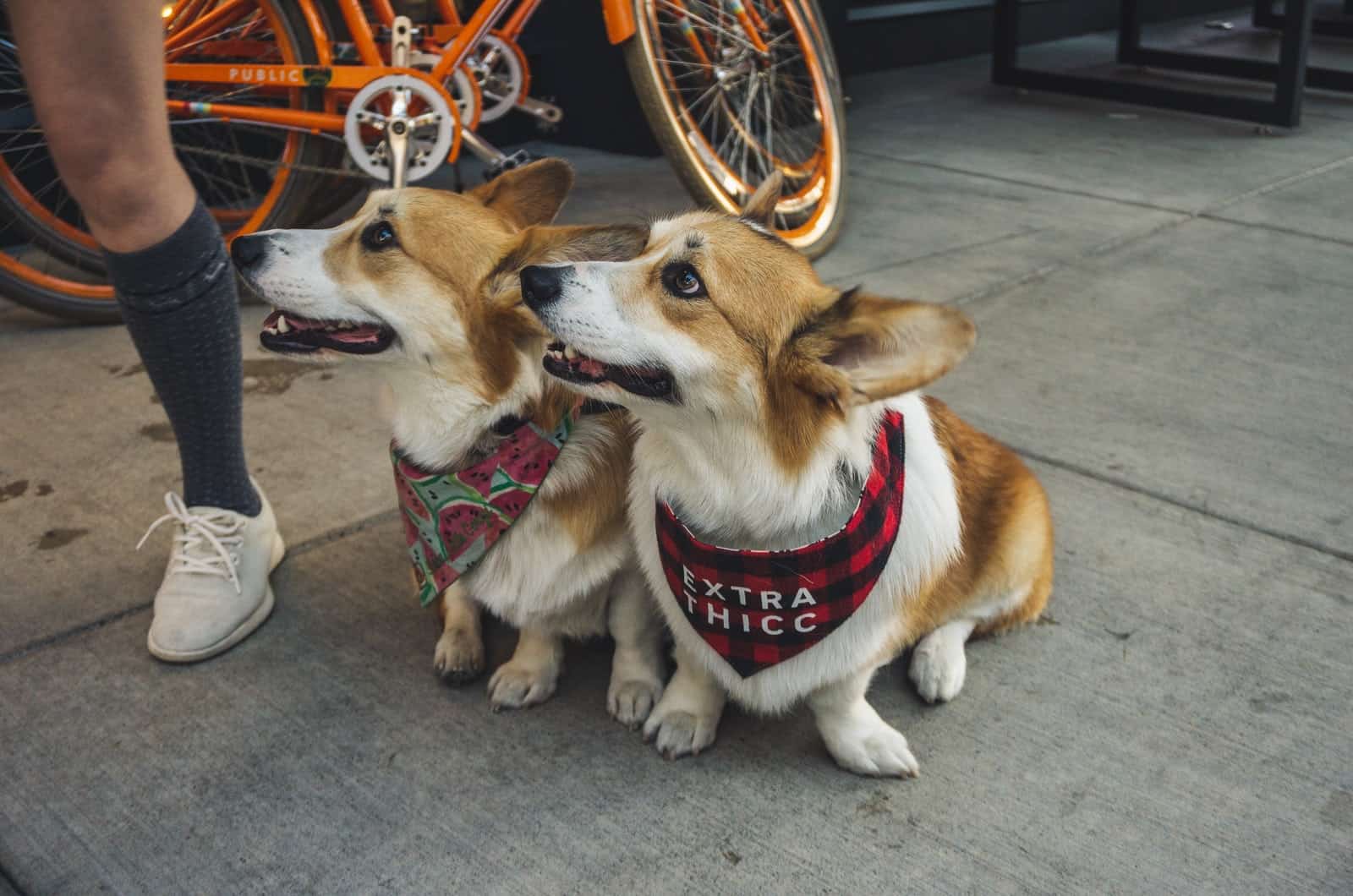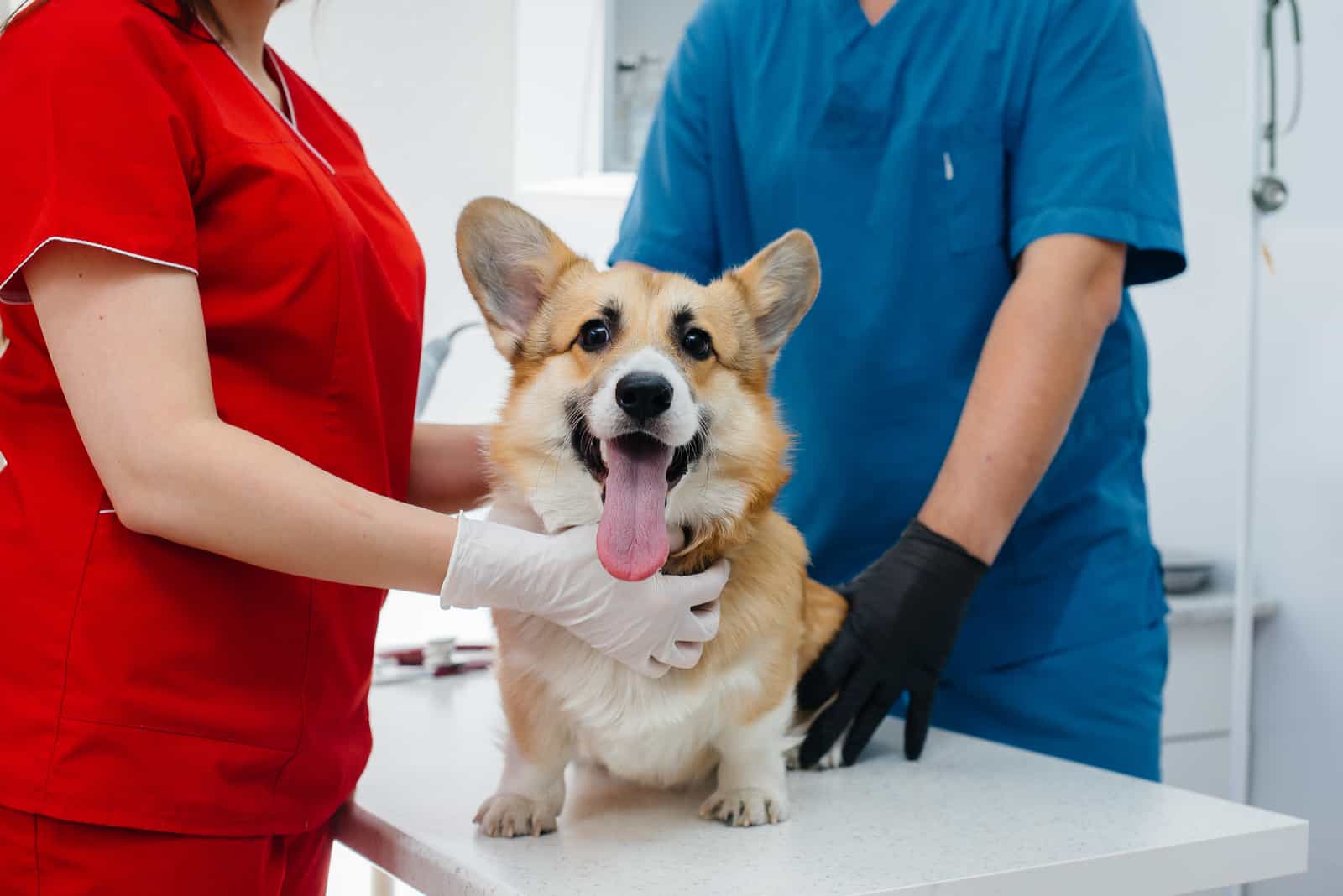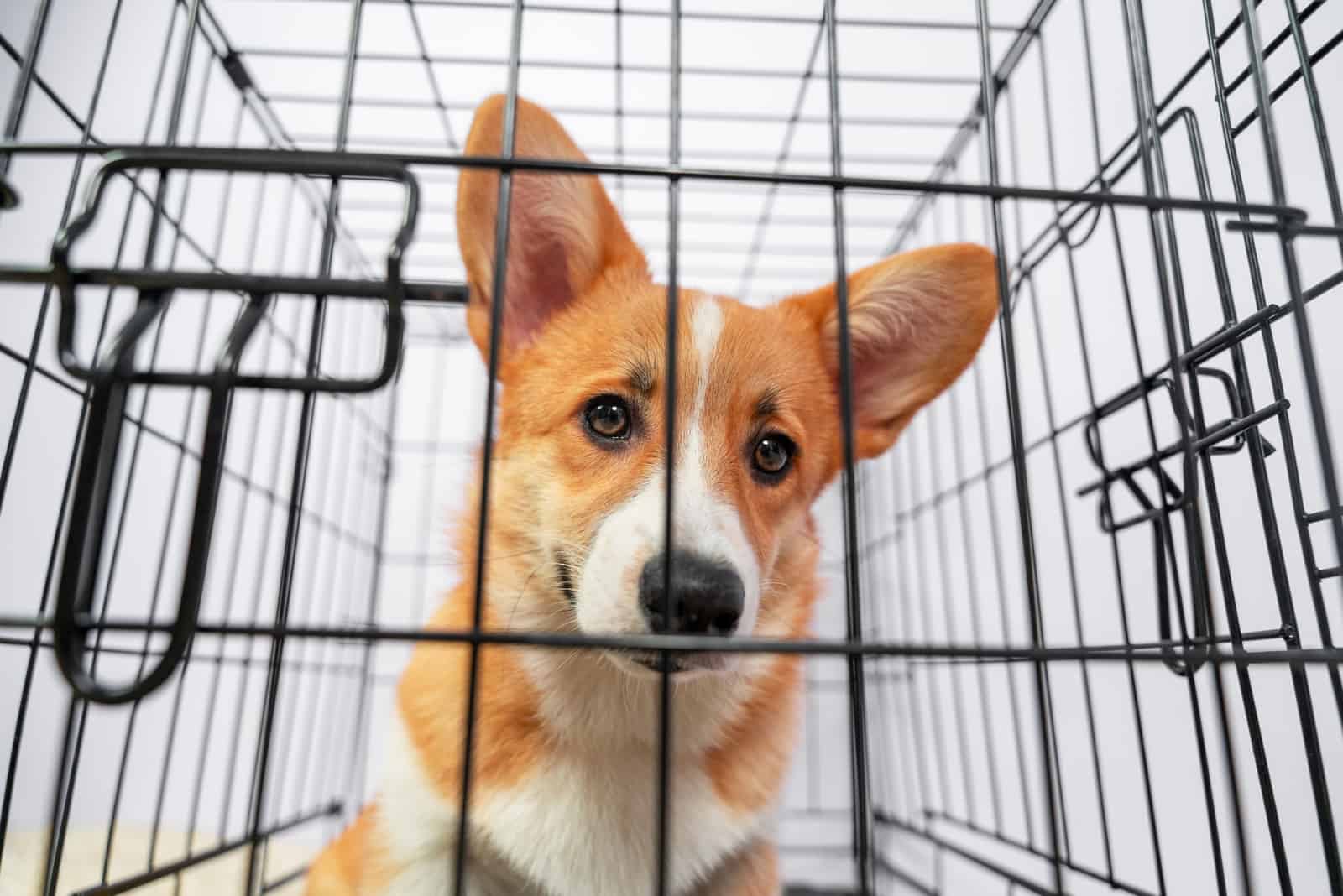Adopting a dog is the best way to get your perfect pooch.
According to data from the Humane Society, there are around three million dogs in shelters and rescues across America every year.
Although several regions have stated their aims to become ‘no-kill’ states in the near future, between 400,000 and 600,000 dogs are euthanized each year, often due to a lack of space and resources. Most of these dogs could have gone to a loving forever home.
So, if you’re after a dog, and the Corgi is your furry friend of choice, you could save a life by adopting instead of buying. But where do you go, and what’s involved?
Never fear! We’ve done the work for you, with a list of the 11 best Corgi rescues for adoption, along with some information that may be useful.
Corgi Rescues Near Me.
It’s always good to support your local rescue if you have one. As well as being convenient for you, it saves the rescue dog from having to travel too far. They’ve been through enough already!
These dogs come in two breeds: the Pembroke Welsh Corgi and the Cardigan Welsh Corgi. Both are fantastic family pets, though there are differences between the two if you know what you’re looking for.
Whichever one you prefer, you can get your next pooch at one of the 11 best Corgi rescues for adoption in our list below.
Some of these rescue organizations have networks across the country, so there’s sure to be one nearby!
1. Cardigan Welsh Corgi National Rescue Trust

The CWGNRT aims to secure a loving home for all purebred Cardigan Welsh Corgis in their care. This is a nonprofit organization with regional coordinators across most states and Canada.
Each dog is carefully screened for problems relating to health and behavior and rehabilitated accordingly.
The CWGNRT uses a portion of its funds to educate the public caring for this unique breed, as well as providing lifetime support to people who adopt from them.
Through their work, they hope that their rescue service will no longer be needed, as all Corgis will have a home.
Volunteers work tirelessly to achieve this, even scouring websites like Petfinder to seek out Corgis in need of help.
Adoption Fees:
$250 (placements are on a trial basis, and the fee is non-refundable. CWGNRT will always take the dog back if things don’t work out, but you will lose the refund)
Website:
https://www.cardiganrescue.org/
2. Queen’s Best Stumpy Dog Rescue

QBSDR has a mission to rescue Corgis (or low-riders, as they call them!) from high-kill shelters across California. They cover the whole state from their base in Acton, about an hour north of Los Angeles.
Their philosophy is that each dog has a unique personality, just like humans. Every dog is carefully matched with the right home to ensure that they are happy, as this is a lifetime commitment.
It’s essential that the dogs aren’t put through any unnecessary trauma or distress. To this end, they strive to find the best home, family, and lifestyle where the dog will fit in.
They don’t judge anyone who surrenders a dog: their only concern is the welfare of each one that comes into their care.
Before going to its “fur-ever home,” every dog is given medical care and is assessed for behavioral issues. Foster carers work with the dogs to discover their quirks and qualities to ensure they go to the right home.
Adoption Fees:
$500, which includes microchip, x-rays, vaccinations, and blood panel.
Website:
http://www.queensbeststumpydogrescue.org/
3. Sunshine Corgi Rescue

Based in the Sunshine State (hence the name!), this rescue group cares for Welsh Corgis that need rehoming across Florida, whether stray, surrendered, or abandoned. They also take dogs from animal shelters to
Sunshine Corgi Rescue is affiliated with the Pembroke Welsh Corgi Club of America and is a nonprofit organization run by volunteers. All of the staff have extensive knowledge and experience of
All dogs are kept in foster homes, and they don’t have a shelter facility. The dogs are given the medical care they need, including heartworm treatment and prevention.
This group will also spay and neuter dogs in their care to reduce the possibility of further unwanted pups.
Adoption Fees:
$0 to $750 depending on the age (the younger the dog, the higher the fee), with an average of $250.
Website:
https://www.sunshinecorgirescue.org/
4. Southeast Corgi Rescue Inc.

SCRI is another volunteer-run nonprofit group that does an amazing job caring for and rehoming Corgis, and Corgi mixes in North Carolina, South Carolina, and Georgia.
Its mission includes ensuring that all dogs are carefully assessed, given medical treatment where needed, and are spayed and neutered. The dogs are also microchipped and vaccinated, then given appropriate training and socialization to prepare them for their permanent new homes.
When they have time, the volunteers devote themselves to fundraising, helping Corgi owners to overcome the challenges this breed presents, and educating the public on animal welfare issues and dogs in particular.
Each dog is tested for heartworm and treated if necessary. They are also given ongoing preventative medication for heartworm, ticks, and fleas.
Adoption Fees:
$200 to $500
Website:
5. The Pembroke Welsh Corgi Club of Southern California

Corgi rescue is only a tiny part of what the PWCCSC does, as they are actively engaged in all kinds of events, like dog shows, agility, obedience, and herding competitions.
Established in 1961, this group has devoted itself to preserving and protecting the Pembroke Welsh Corgi breed, not only through improvements in breeding and training but also by fostering good relationships between Corgi owners.
Part of their outreach includes a program that encourages responsible dog ownership among the general public.
When considering a new home for any dog, the PWCCSC puts the dog’s needs first, which is as it should be.
All dogs are spayed and neutered and will have appropriate vaccinations. They are carefully assessed to find a suitable home.
You can find an especially helpful section on their website under the resources tab, giving information about Corgi groups, including rescue and adoption organizations.
Adoption Fees:
A donation of between $100 and $500 is requested, depending on the dog’s age.
Website:
6. Columbia River Pembroke Welsh Corgi Club

Established in 1987 and based in Oregon, the CRPWCC is another group that encourages responsible breeding and ownership of these short-legged herding dogs.
They adhere to the breed standards set by the American Kennel Club (AKC) and offer advice on all aspects of caring for Corgi dogs.
In addition, they are involved in rescuing and rehoming purebred Corgis when the need arises. As with most of these clubs, there is a strict code of ethics that all members are expected to uphold at all times.
This is helpful, as you can be confident that they are acting in the dog’s best interests, especially regarding rescue and rehoming.
Adoption Fees:
No figure is given on the website, although they mention that ‘reasonable veterinary bills’ will be incurred.
Website:
7. Top Of Texas Corgi Rescue

TTCR was established in 2013 and is run on a small scale, split between two households in Lubbock and Amarillo.
As with the other rescues, this is a nonprofit group run by volunteers. Although they officially formed TTCR in 2013, helping Corgis has been a big part of their life for many years before this.
TTCR looks out for Purebred Corgis, and Corgi mixes with the intention of finding the best homes for every dog. They get their dogs from a range of sources, such as animal shelters, other rescues that don’t have enough foster homes, and notifications on social media about dogs in need.
They also accept dogs surrendered by owners who can no longer care for them for any reason.
All their rescues are spayed and neutered and given all necessary medical care before being placed in a forever home. Each dog is vaccinated and microchipped before going home.
Adoption Fees:
$125 to $200
Website:
https://topoftexascorgirescue.com/
Read More: Best Corgi Rescues in Texas
8. Pet’s Second Chance Inc.

The name says it all: Pet’s Second Chance.
Linda Moore set up this nonprofit rescue group in 2000, and her love for this breed is evident, as is her extensive knowledge and experience. This is someone who really knows Corgis!
PSC accepts all Corgis, whether Pembrokes, Cardigans, or mixes. They also receive them in any condition or age, and many have medical problems (including broken bones) that need specialist care.
One phrase on Linda’s website really hits home, illustrating that almost every dog in her care comes with a broken heart and spirit, whatever the state of their health.
This is why adoption is essential and why the volunteers that run rescue groups are such amazing human beings.
All rescue groups are run by people with a passion for animals. PSC proves this further, as they are members of the St. Louis Petlover Coalition, a collection of animal shelters, rescues, health departments, and veterinary organizations working together to improve animal welfare.
As with most rescues, PSC takes in dogs in a selected area: Northern Arkansas, Missouri, and Sothern Illinois.
The PSC website urges anyone thinking of adoption to consider the actual cost of owning a dog. As they say, it’s not limited to a one-off adoption fee; it’s a lifetime commitment to covering all the expenses involved.
Adoption Fees:
Available on request, see the PSC website for details.
Website:
9. Lakeshore PWC Rescue Inc.

As you can probably see from their name, this group looks out for Pembroke Welsh Corgis.
They cover a wide area, right across Michigan, Minnesota, Illinois, Iowa, Indiana, and Wisconsin!
Again, this is a nonprofit organization run by volunteers, funded entirely by donations and adoption fees.
Their dogs come from various sources, including owner surrenders and from other rescues that are struggling for space or foster homes.
As with the other groups, each dog is spayed or neutered if this hasn’t already been done. They are also assessed, vaccinated, and treated for any apparent medical conditions, and any dogs with long-term, treatable problems will have this noted on their description.
Unlike some groups, LPWCR does not accept dogs with a history of aggression against humans, especially if they have been known to bite.
They state on their website that they generally receive more applications each year than they have dogs to adopt. Because of this, not everyone will succeed in getting a Corgi from them.
If you don’t already know about the Pembroke Corgi, check out this group’s website for an overview of these larger-than-life pooches!
Adoption Fees:
Contact LPWCR for available dogs and fees.
Website:
https://lakeshorecorgirescue.org/
10. Corgi Connection Of Kansas Rescue

CCKR is also run by volunteers and is a nonprofit organization helping Pembroke and Cardigan Corgis to find a loving forever home with a new family.
As with most of those listed here, they don’t have their own shelter, and all their dogs are temporarily housed with foster carers while they are treated and assessed.
Although based out of Kansas, CCKR also extends its excellent services to the Midwest area.
Each dog is checked out for heartworm, treated for parasites, brought up to date on vaccinations, and groomed professionally to get them ready for adoption.
During this process, the carers become acquainted with the dog’s personality and character quirks which helps them match each dog with the right family.
As you’d expect, the adoption process is thorough and rigorous.
Adoption Fees:
Average of $300
Website:
11. Forpaws Corgi Rescue

Although based in San Francisco bay, Forpaws does ship dogs nationwide, but only after strict checks to ensure the new home is suitable.
There’s a wealth of advice and information on the Forpaws website, including a section on whether the Corgi is the right dog for you. They also have links to other Corgi Rescue groups.
One particularly helpful link advises Corgi owners how to understand their herding dog’s behavior around kids, which could reduce the risk of being bitten.
Kathy Miller, the founder of Forpaws, had plenty of experience with Corgi rescue prior to setting up this venture in 1999. The idea was sparked by the realization that many other groups focused on purebred Corgis, but Corgi mix dogs were often ignored.
Kathy’s passion for these dogs led her to launch Forpaws with a view to addressing this imbalance.
Her main concern is placing dogs in good homes, and she makes no apology for being forthright about this: if you start the adoption process with Forpaws, Kathy will tell you honestly if she believes you are making the wrong decision.
If you are successful in adopting, you are assured of a lifetime of support and advice.
Adoption Fees:
Contact Kathy directly for information.
Website:
Why Adopt A Corgi?

If you’re searching for a Corgi dog, you have several options:
• Go to a Corgi breeder.
• Buy from a pet store.
• Buy online.
• Contact your local animal shelter or animals shelter.
Out of these, the first and last options should be the only ones you consider.
Why should this be?
First, you’ll possibly be saving a life, as we said right at the start.
The second reason is that all the other choices are too risky! Pet stores are notorious for keeping animals in poor conditions and obtaining their stock from puppy mills, sometimes from overseas, where legislation about animal welfare is less strict.
Buying a dog online is never a good idea: around 80% of all puppies advertised for sale online are scams!
Reputable Corgi breeders look after their dogs well, and you know the pups will be healthy. And one sure sign that they are ethical is that they will always encourage buyers to adopt instead of shop, even if they lose out on a sale.
That leaves us with rescue groups. These places are run by amazing volunteers who dedicate their lives to rescuing dogs, often of a specific breed they love (though many will take in all dog breeds).
You can find your furry companion in our list of the 11 best Corgi rescues for adoption.
How To Adopt a Corgi

Each Corgi rescue group has its own set of rules and adoption procedures.
These will generally be pretty strict, which is only fair as they are keen to avoid their dogs enduring any further stress and emotional trauma.
Most involve an initial adoption application, but this by no means guarantees that you will get a dog.
Your application will be scrutinized and assessed to see if you are a good match. These forms will typically ask about your living situation, whether you’re in a house, an apartment, or whatever. They’ll ask about the size, location, and how many people live there.
They’ll want to know if you have a garden or yard and how secure it is.
Get Ready For Some Personal Questions!
Most will also inquire about your finances to some degree, as they need to know that you can cope with the burden of feeding and caring for a dog.
They will probably also ask whether you have other pets (especially dogs) and even whether everyone in the home is happy with the thought of a new pooch in the house!
Some groups stipulate that all other dogs in the home must be spayed or neutered.
You can also be sure that they’ll question you on your lifestyle and whether you’ll be out at work all day.
Many people take offense at this line of questioning, especially when they are unsuccessful.
However, it’s best to think of it this way: the dogs are their number one priority, and they are only looking out for them! A rescue group that isn’t fussy about where the dogs go isn’t doing the job correctly.
Be Prepared For A Home Visit
Once your form has been approved, some groups will request a home visit to check out a few details and ensure that your yard or garden is secure. Several groups also conduct an interview to assess whether you are the right people for the dog.
Again, it’s easy to be testy about this, but remember: it’s to ensure the dog’s safety, and it isn’t a criticism or a personal insult to you or your home!
Some rescue groups have a waiting list, as Corgis aren’t as commonly available for adoption as other breeds. Also, it takes time to assess and rehabilitate each dog, so you will have to be patient.
If you’re planning to adopt a dog on behalf of a third party as a gift or a surprise, think again. Very few rescue groups will entertain this idea. The person who fills out the adoption application will be the registered owner, which is not negotiable.
Getting a dog for a family member in the home is one thing, but giving a pet as a gift to someone outside the home, especially if it’s unexpected, is rarely a sensible idea.
You can possibly speed up the adoption process by being flexible about the age and sex of your dog; otherwise, you’ll need to wait as long as it takes.
Bringing Your Rescue Dog Home
Once all the interviews and checks have taken place, and the rescue is satisfied that your home is suitable, arrangements are made to bring the dog home.
You need to allow about three months in total until your new best friend settles in. The first three days will be a challenge, then the next three weeks. By the third month, all should be going smoothly.
Don’t forget, the rescue group where you got your dog will be only too happy to guide and support you through this process. They will work with you to avoid the pooch facing any more trauma and distress.
Sadly, it doesn’t work out in some cases, and the rescue will always take the dog back. Never take the dog to a shelter, as this will do them much psychological harm.
On a happier note, most rescue dogs settle into their new homes well and live long and fulfilling lives with their adoptive pet parents. Many of them seem to know somehow that they’ve had a lucky break, and you can see just how content they are.
And that alone makes adopting worthwhile.
Should I Adopt a Corgi?

Before going ahead, it’s essential to think this through and consider all the potential problems and challenges, as rescue dogs may come with some baggage.
Also, you have to consider why they wound up in a rescue or shelter in the first place. The truth is: Corgis aren’t the easiest dogs to live with, and they have a host of potential health problems. You have to be absolutely certain before going ahead.
Even so, you’ll rarely find a more loyal friend than a rescue! These dogs are so keen to please you that they’ll be happy to learn whatever you’re willing to teach them.
Of course, much of this depends on each dog’s individual character and personality, but ask people who have adopted a rescue dog, and most will tell you the same story.
Are You Ready For The Challenge?
That’s not to say that there won’t be challenges ahead. Most rescues assess and rehabilitate each dog before matching them carefully with potential owners to ensure they’re a good fit for their new homes. However, you may need to overcome some obstacles.
Here’s a list of the more commonplace issues you might encounter:
• Housetraining issues. While rescue groups do their best to retrain their dogs at foster homes, it’s sometimes only partially successful. You must be prepared to persevere and help your new furry pal to adjust.
• Anxiety. This shouldn’t be a surprise, as many of these poor creatures have been neglected, abused, or abandoned. In many cases, the whole story isn’t known, and the rescue groups don’t know precisely what each dog has gone through.
• Aggression. Including leash-aggression, resource guarding (snarling and growling when anyone goes near its food bowl or toys), and aggressiveness towards other dogs and animals.
• Poor socialization. Rescues don’t always have the dog’s full history, and even when they do, there’s no guarantee that the dog has been properly socialized. Also, the dog’s actual age is often unknown. This is connected with the problem of aggressiveness, as the pup hasn’t learned how to behave around other animals and dogs.
• Destructiveness. Some dogs will not have received adequate training or developed behavioral problems because of what they have been through. There is a chance that they may resort to destructive behavior as a result.
All rescues will do their best to resolve any behavioral problems before the dog goes to its new home. In severe cases, they will keep the dog with a foster carer.
And Now For The Positives!
Although the list of negative points looks daunting, this is just to give you a realistic idea of what you might come across. There’s a pretty good chance that you won’t encounter any of them! Let’s look at some of the good things about adopting your dog to balance the list above:
• Adopting a dog saves a life. Each dog that’s adopted is one less facing the prospect of being euthanized. This alone is a great reason for adopting!
• You are helping to reduce the overpopulation problem. More dogs are bred than there are homes to take them in. Adopting instead of buying from a breeder reduces demand and gives homeless dogs a chance.
• You avoid the challenge of the puppy stage. Young puppies are hard work. Getting an adult dog will bypass this, and in all probability, your pooch will be housetrained and well behaved.
• Your new dog will be spayed/neutered, microchipped, and health-checked. Most rescues ensure that their dogs are basically healthy and that they are microchipped. They’ll also make sure that they can’t breed, so there’s no chance of any accidents!
• You could have the perfect pet! Many rescue dogs don’t have a history of aggression or behavioral problems. Most are confused and sad at being abandoned, making them all the more grateful when they find a loving home. They are affectionate, loyal, and faithful to the end.
• Finally, you’ll have support from the rescue group. You’re not in this alone! You can guarantee that the rescue group will keep in touch to see how it’s going. They’ll be there for you when you need help with your adopted pooch, and you may end up on their website as one of the many, many success stories.
On balance, it’s definitely worth giving adoption a chance. All of the Corgi rescues on our list know the breed well and have strict assessment protocol. They would never release a dog that they believed too sick to unhealthy, and neither would they allow an overly aggressive animal to be adopted.
In most cases, these dogs stay with the foster homes until a decision is made about their long-term future.
So, your adopted Corgi is likely to be generally healthy, at least two years old, trained (and potty trained), though perhaps a bit confused.
With a bit of love and patience, you’ll soon have a loyal best friend.
Corgi Health Problems

It’s best to be aware of any health issues that your rescue Corgi might have so you are prepared for any problems. Try to learn the signs and symptoms so you can get the proper medical care in plenty of time.
These are some of the more frequently encountered health conditions you should know about:
• Epilepsy
• Intervertebral disc disease
• Canine hip dysplasia
• Skin complaints
• Von Willebrand’s disease
• Hypothyroidism
• Patent ductus arteriosis
That’s not to say they’ll definitely get these conditions! However, some are more serious than others, so it’s best to keep a close eye on your dog.
Why Do Corgis EndUp In Shelters?
As with all dog breeds, they find their way there for various reasons, including family break-ups, death of the owner, moving home (especially overseas), or the owner getting sick or too old to care for them any longer.
Some breeds, the Corgi included, are given up to rescue groups or shelters because the owners didn’t figure that the dog would take so much effort.
They are ill-prepared and unwilling to train their pup, so it becomes too much for them. Anyone who knows Corgis understands that they are not the easiest breeds to live with. However, it’s worth the effort if you persevere.
Other owners surrender their Corgis because they can no longer cope with the heavy vet bills. It’s true that these stumpy-legged canines have more than their fair share of health conditions, but to those who love the breed, it makes them all the more special.
If you understand this, then you’ll be fine. Otherwise, you need to consider a different breed!
Young Corgi For Adoption

Photo from: @cutecorgiworld
It’s unlikely (though not impossible) that you’ll find Corgi puppies at a rescue. Dogs make their way to rescues and shelters for a wide variety of reasons, but rarely when they are any younger than two years of age. If you do find a puppy, expect to pay more.
Most people want a puppy as they believe they are easier to train because they don’t have a long history of living with another family.
While this is true, to an extent, rescue dogs are just as capable of learning new things, regardless of age. Generally speaking, rescue dogs are more loving and affectionate once they accept that they have found their forever home.
Retired Corgi Adoption
Instead of adopting from a rescue center, you could see if a local Corgi breeder has any retired dogs.
Many breeders keep dogs as family pets once they have been removed from the breeding program, although others sometimes find them loving homes.
Don’t be fooled by the word ‘retired’: these aren’t old dogs on their last legs! It’s never wise to breed dogs older than eight years, and most reputable breeders retire their females at around age five.
As the Corgi has an average lifespan of between twelve and 15 years, you still have plenty of time to enjoy their love and companionship.
It’s likely that your dog will be spayed or neutered, as they’ve played their part in keeping the breed alive and have earned their rest!
In Conclusion
We hope our list of the 11 best Corgi rescues for adoption is helpful in finding your own furry friend.
Corgis are brilliant, whether Pembroke or Cardigan, and the Corgi mix breeds have their own quirks.
However, you must be absolutely certain that this is the breed for you before adopting. These beautiful dogs have been through a lot – some more than others.
Rescue dogs have often been abandoned, neglected, abused, starved, and forgotten. Others have been torn from loving homes due to tragic circumstances and will be confused and heartbroken.
Taking on one of these precious lives is a privilege and a big responsibility. It’s up to you to provide all the love, care, and attention that your new best friend needs. And when you do, you’ll be rewarded with lifelong loyalty and devotion.

